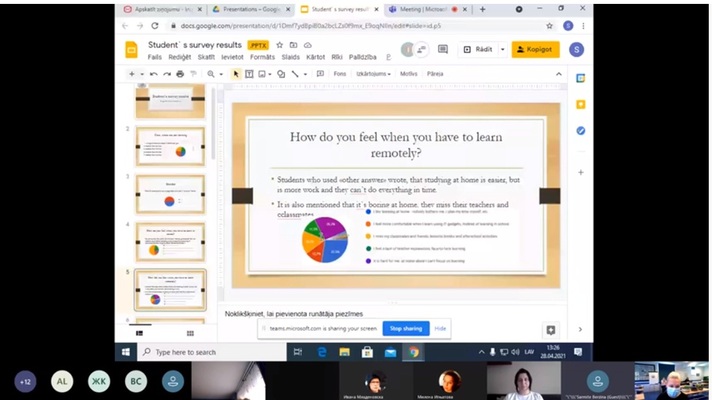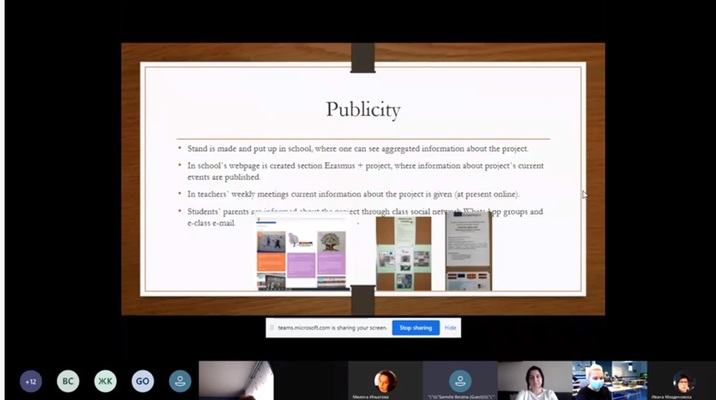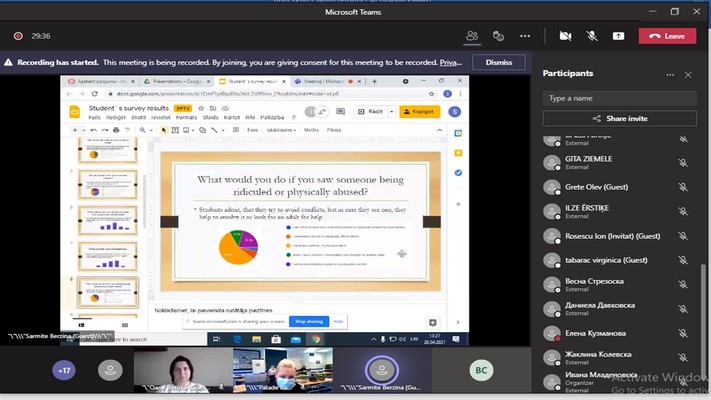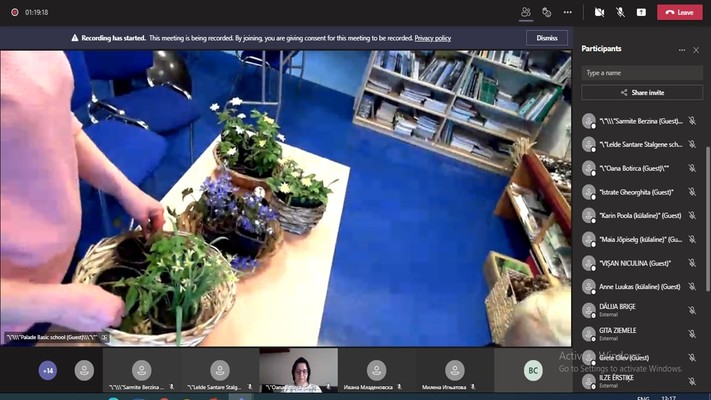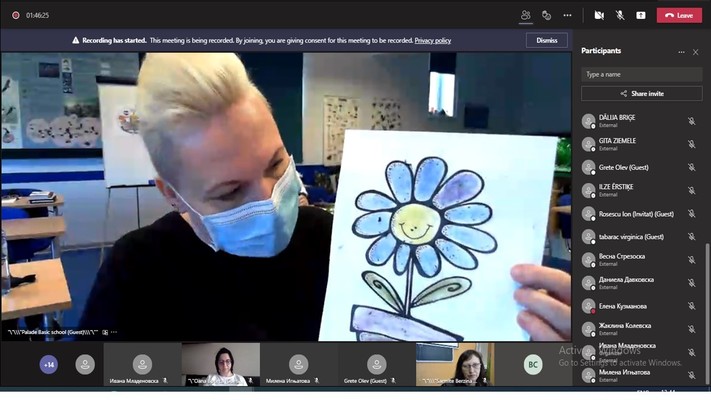REPORT
of Virtual mobility activities as part of short term joint staff training “Study visit of STEM teaching in nature" (C1)
Date: 26.-28.04.2021
Host partner: Palade Basic School, Estonia
Place: MS Teams, Zoom
Partners:
Stalgene Secondary school, Latvia
OOU “Lazo Angelovski”, North Macedonia
Liceul Technologic Topoloveni, Romania
Total number of participants: 17 teachers
1st virtual mobility day 13.00 – 17.00
Welcome words to participants from principal of Palade Basic School Mr Antti Leigri, Vice principial of primary school Lazo Angelovski Milena Ignjatova, headmaster of Topoloveni Technological Secondary school Rosecu Ion and project coordinator Lelde Santare.
The host school (Palade School) teacher Mrs Klaire Leigri shortly introduced with the agenda of virtual activities
Day 1 agenda.pdf
Ice braking game “How is who”
Presentations (video) of each partner school to introduce with their school.
Mrs Maia Jopiselg, project coordinator of Palade basic school presented Estonian education system and Palade basic school
Day 1 Estonian Education System.pdf
Mrs Lelde Santare, project coordinator introduced with Slow Movement, Slow Education
Day 1 Introducing Slow movement.pdf
Also good examples - school from Spain and UK was presented to introduce how slow education schools are working – their challenges and benefits for students (Youtube video). All partner schools worked in break-out rooms (Jamboard ) to prepare and present challenges, benefits, experience and follow-up of implementing slow education elements in each partner school. 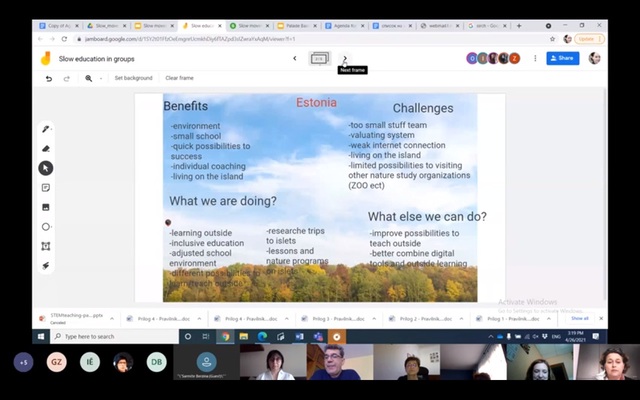
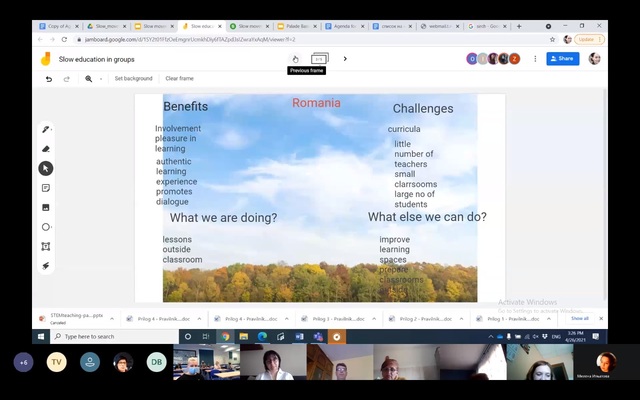
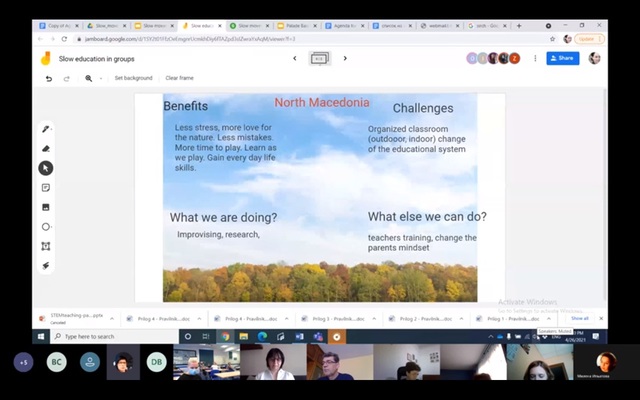
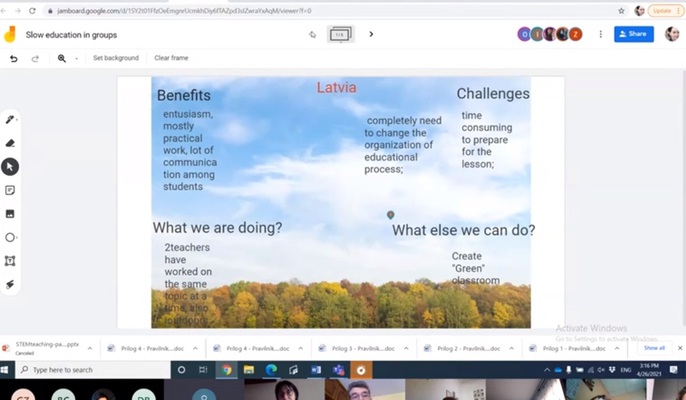
At the end of first day online evaluation was made (pullUnit)
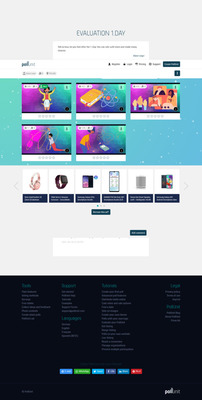
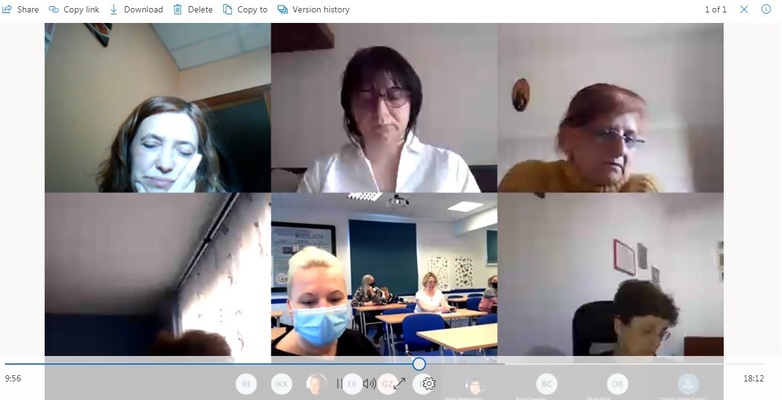
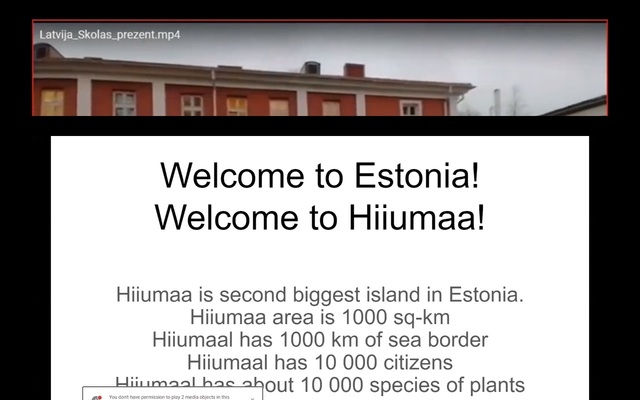
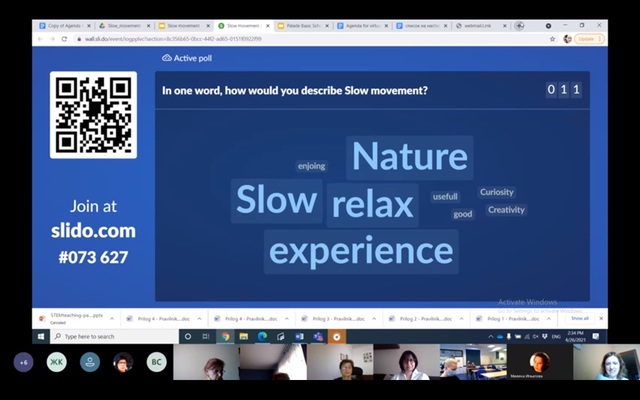
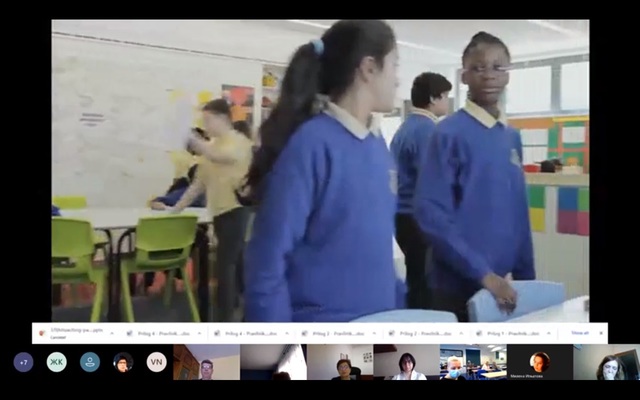
2nd virtual mobility day 13.00 – 17.00
The host school (Palade School) teacher Mrs Klaire Leigri shortly introduced with the agenda of virtual activities
Day 2 agenda.pdf
Palade Basic school and Palade Center of nature education presented their experience and environment for STEM teaching in nature.
Each partner school introduced with their experience of STEM teaching in nature. NM – Biology, LV – Physics, RO - interdisciplinary activity Science, Maths, Sports. Teachers find out good examples and experiences to bring to their work.
Summary:
-
STEM teaching in nature is normal education process in everyday school life of Palade Basic school. There are equipped out-door class, also learning in the nature is possible in every place surrounded school because of school location. Also STEM teaching could be as part of interdisciplinary activity: sport + geography and geology + art.
-
STEM learning in the nature develop also cooperation and communication skills, creative thinking.
-
Remote learning due to Covid, changed conditions for organization of STEM in the nature.
Practical STEM workshop in nature organized by Palade Basic school “Herbal color”
Day 2 Materials for workshop Herbal color.pdf
Day 2 Worksheet for workshop Herbal color.pdf
Day 2 evaluation.pdf
“GEL BEADS experiment at home”
Day 2 Materials for experiment at home Gel pads.pdf
Day 2 Worksheet for experiment at home Gel pads.pdf
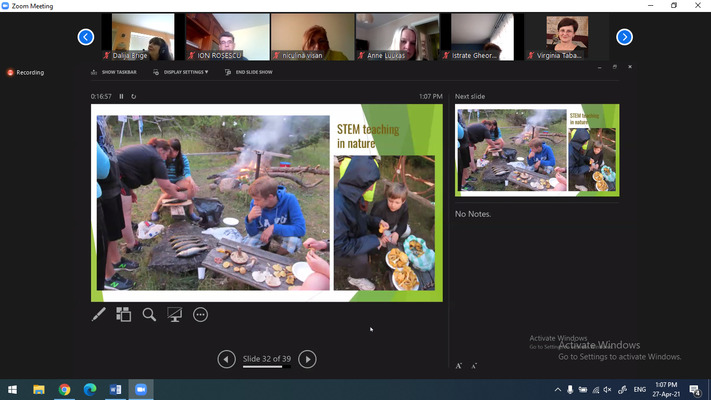
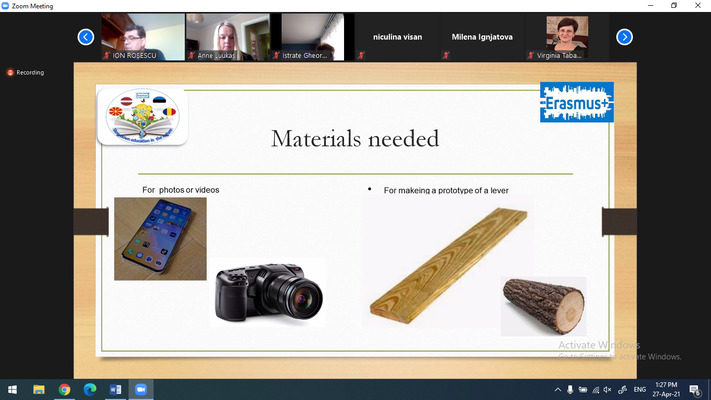
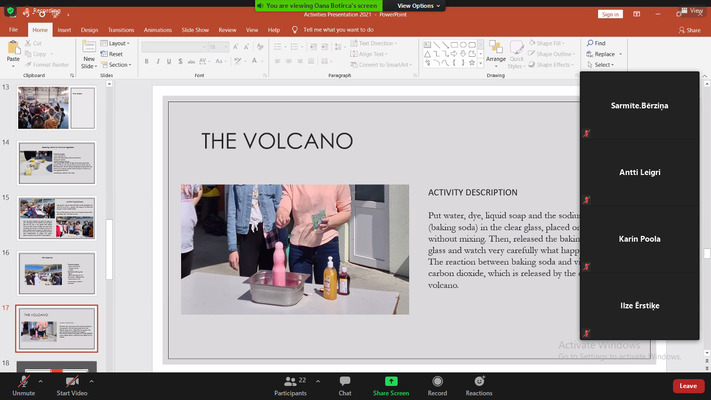
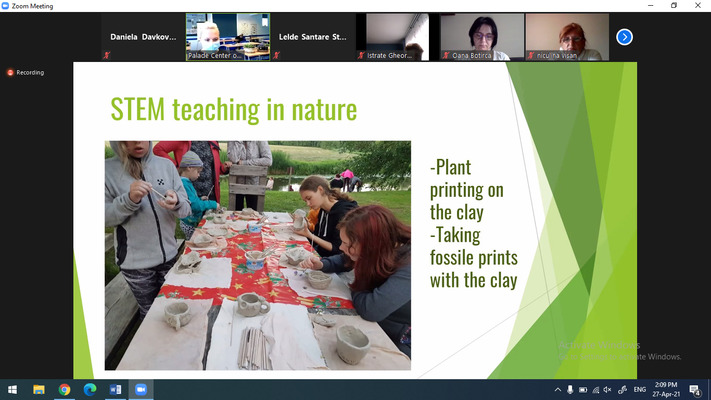
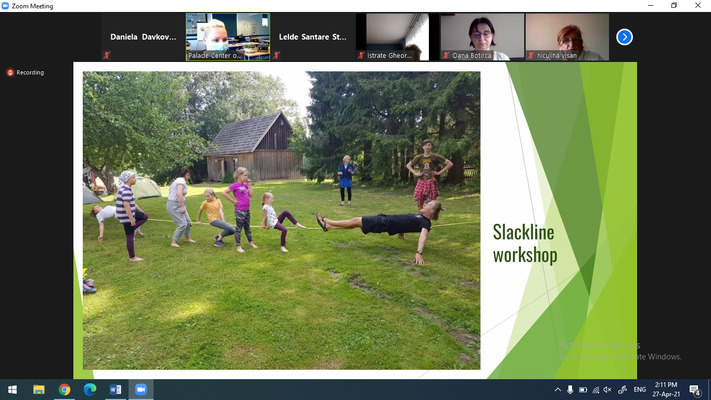
3rd virtual mobility day 13.00 – 17.00
The host school (Palade School) teacher Mrs Klaire Leigri shortly introduced with the agenda of virtual activities
Day 3 agenda.pdf
Each partner school introduce with the result of students survey what was done at February, 2021. The objective of survey is to understand students feelings, needs and habits during school time. The summary of survey results:
-
Total number of participants of survey 200 (63 students from North Macedonia, 42 from Romania, 80 from Latvia, 15 from Estonia)
-
There are a lot of similarities between all partner schools but also we can find differences.
-
How are you feeling when you have to learn at school? 54% NM, 24% RO, 7,5% LV go to school with pleasure. Mostly I don't like being at school 20% LV, 4%RO; 5%NM. Estonian students all answered “In general I like to go to school, but there are some things I don't like about school” or “There are days when I want to go to school and there are days when I don't want to”
-
How are you feeling when you have to learn remotely? Students like learning at home: 27,5%LV, 27% EST, 22% NM, 14%RO; Students miss their classmates: 52%NM, 48% RO, 40% EST, 16%LV; I feel a lack of teacher explanation, face-to-face learning: 24%RO; 11%LV, 9,5%NM, EST 0%.
-
Please indicate your level of stress at school when you physically attend school. Answers are very similar for all schools: around 16 – 22% of students don’t fell stressed at school. And 3 – 8% of students (EST 0%) are very nervous and stressful at school almost every day. However, LV students are more prone to stress at school than other partners.
-
Students self-assessment. Very similar answers, however, NM students have higher self-assessment than students from other schools.
-
What would you do if you saw someone being ridiculed or physically abused? Most popular answer in all schools: I don't like conflicts, I try to avoid them. There were some students who reported bullying to them: 7%RO, 4%LV, 1,6%NM, EST 0%. According OECD data, the number of such students are around 30 - 22% in our countries.
-
What you usually did during lesson breaks at school? Most of students communicate with friends and classmates 87% EST, 81%NM, 79%RO, 47,5% LV. Use smart devices: 34%LV, 14% RO, 3,2% NM, 7%EST. Very small number of students are active during lesson breaks.
-
How would you like to spend your free time after hours and lesson breaks? It should be noted that many students indicated answer “I would love to play sports, active games, move” 52%RO, 40%LV, 30%NM, EST 0%.
-
What kind of activities would you like to participate in during the project? The most popular answer for almost every partner school “I would love to communicate and meet peers from other European schools”: 67%NM, 64%RO; 60% EST, 42,5%LV. The second popular answer “I want to learn Math, Science, etc. subjects outside the school premises - in nature” 55%LV, 44%NM, 43%RO, 40%EST. The 3rd popular answer “I would love to organize events for my classmates”59,5%RO, 40%EST, 29%, 25%LV, Also a lot of students mentioned answer “I would like breaks without smart devices” 41%LV, 40%NM, 29%RO.
Each partner presented what they have done in the project so far.
Next activity was Workshop for teachers – time for wellness organized by Palade Basic school.
Farewell words by project coordinator Mrs Lelde Šantare.
Summary from evaluation:
-
12 answers (17 participants)
-
For almost all participants it was first experience in virtual mobility (except 1 participant)
-
The main motivation for taking part in this online training was professional development: To experiment and develop new practices and methods (91 %), To strengthen my skills in STEM teaching in the nature (75%)
-
All participants indicate they meet their expectation and got new practices and ideas for STEM teaching.
-
Participants developed following competences: Practical skills 75%, IT skills 67%, communication in foreign language, cooperation skills, Cultural awareness and expression (58%)
-
Personal and professional development: I have learnt from good practices abroad (83%), I have upgraded my knowledge of school education systems in other countries (67%), I have increased my awareness on new methods of assessing/giving credit for skills or competences acquired in learning context (67%)
-
Impact to school: Will lead to the use of new methods/approaches/good practices at my school (92%), I am inspired to give recommendations in slow education at school/municipality (92%)
-
The open question, if there is something what should be changed. 4 answers: to make physical mobility instead virtual 😊 The challenge are large classes – how to organize STEM teaching in the nature with large number of students.
-
Evaluation of activities program 69% excellent, 31% very good
-
Evaluation of moderators and facilitators 69% excellent, 31% very good (positive and professional)
